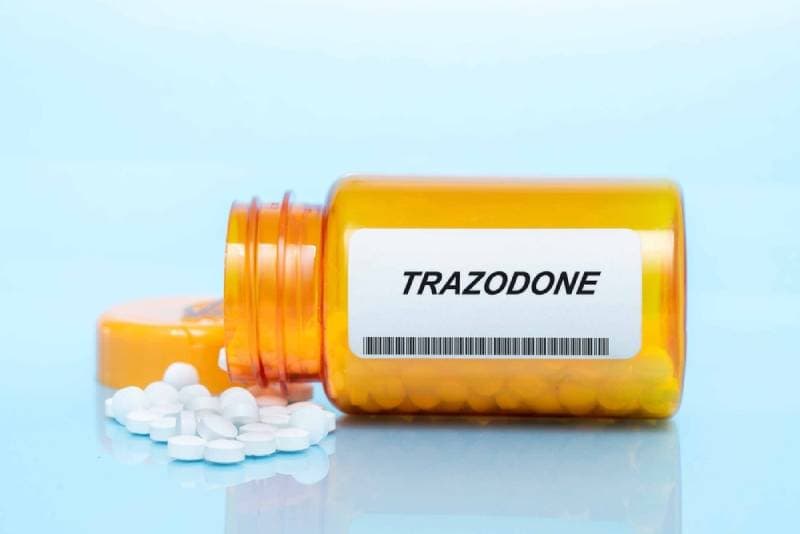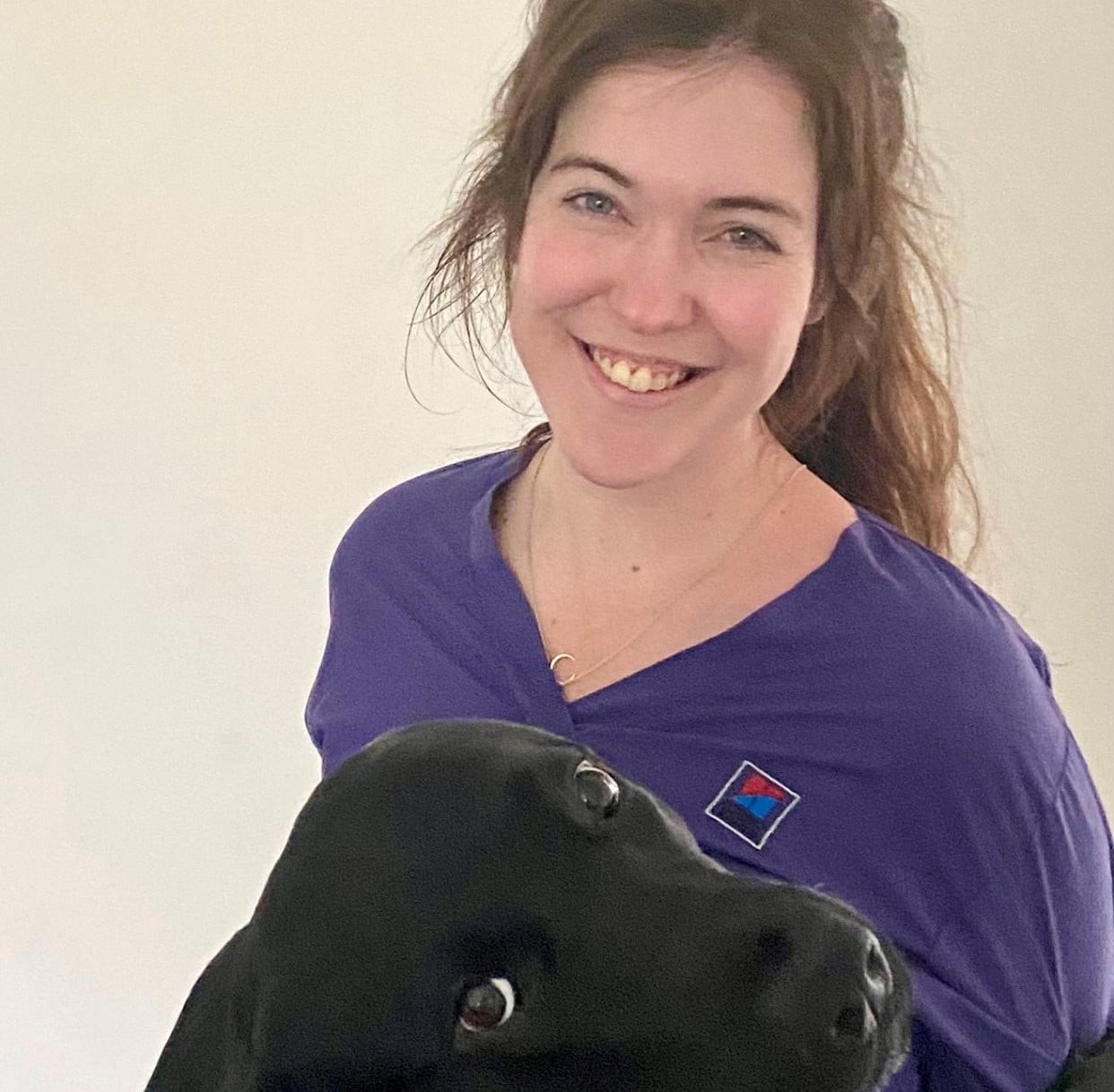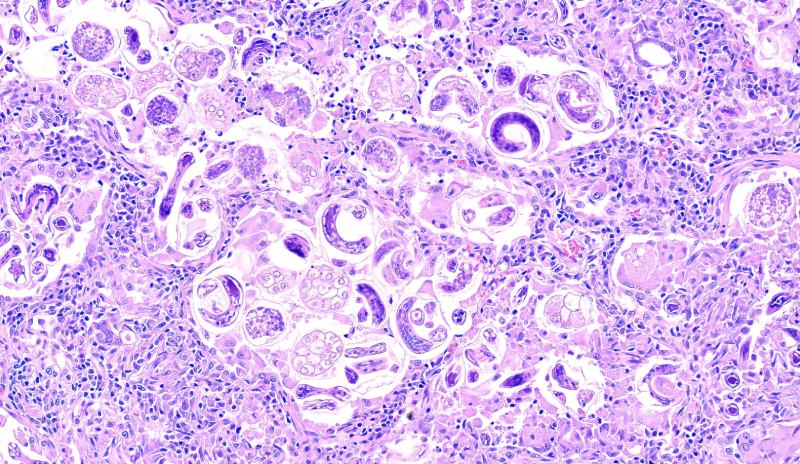Can Cats Have Down Syndrome? Our Vet Explains
By Dr. Kim Podlecki, DVM (Vet)
Updated on
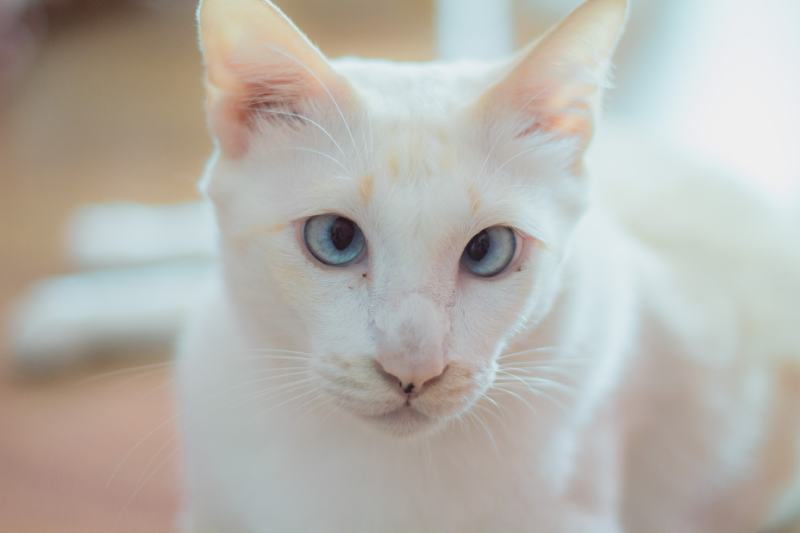
In the age of the internet, it can be difficult to know what is true and what is false. Recently, there has been a trend of people wondering if cats can have Down syndrome, and others actually claiming their cat has Down syndrome. Down syndrome affects humans only, and cats cannot be born with or “catch” Down syndrome. In this article we’ll discuss what Down syndrome is, why some people may wonder if cats can have Down syndrome, and if there is anything you can do if your cat truly has special needs.
What Is Down Syndrome?
Down syndrome is a congenital disorder seen in humans only. This means that only people are born with this condition.
Each living thing has a set number of chromosome pairs they are born with. Within these chromosomes, DNA and different genes help determine all types of things from eye color, sex, hair color, etc. Humans have 23 chromosome pairs for a total of 46 total. But instead of just having a chromosome pair, people with Down syndrome actually have an extra partial or full chromosome 21 (referred to as trisomy 21).
This extra chromosome causes the birth traits that we associate with Down syndrome, such as having low muscle tone, typically being small in stature, having an upward slant to their eyes, wide set eyes, and a larger, flat forehead. Even though people with Down syndrome may all share similar traits, please be mindful that each of these people’s genes are unique and they do not all look and act the same. A person with Down syndrome should be treated as an individual, each with their own personality and unique abilities and capabilities.

Why Can’t Cats Have Down Syndrome
The answer to this is simple – cats only have 19 pairs of chromosomes. Therefore, there is no possible way for them to have Down syndrome, as Down syndrome affects the chromosome 21 pair.
Can Cats Get Similar Abnormalities?
Most veterinarians, myself included, do not condone or support people that refer to their cat as a “Down syndrome cat” based on their cat’s behavior and/or appearance. This is extremely disrespectful to individuals with Down syndrome. A person with Down syndrome has an extra partial or full chromosome 21. While they do share similar attributes with others who also have Down syndrome, they are all still individuals. Your cat is also an individual. While they are all born with 19 pairs of chromosomes, they will each still have their own unique body type, coat pattern and personality.
There are some influencers who frequently make mention of their cats looking like they have Down syndrome due to physical appearance such as: a broad flat nose, wide-set eyes, small ears, small body size, and cognitive abnormalities. Each of these things can just occur in individual cats. Other times, your cat may have another congenital abnormality such as cerebellar hypoplasia, or have infectious conditions such as FeLV, FIV or panleukopenia that they contracted in the womb.
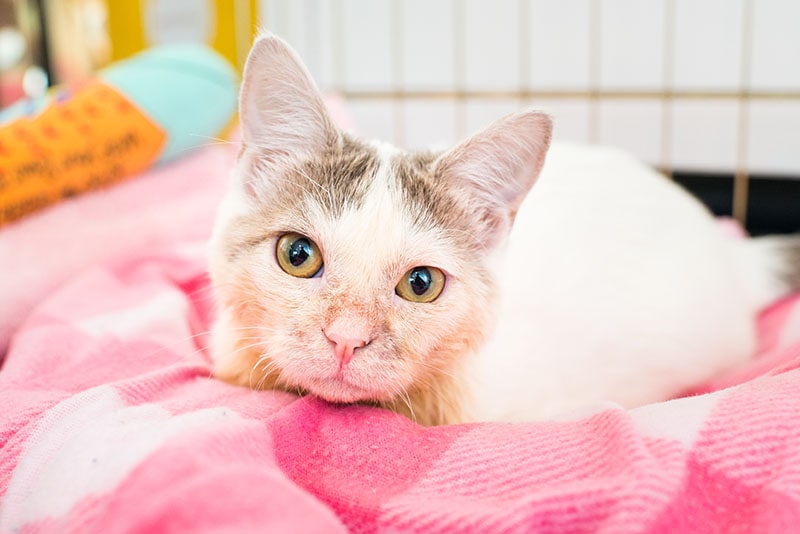
But I Saw a Cat With Down Syndrome on Social Media…
As with anything and everything, don’t believe everything you see, read, and hear on the internet. There have been some social media accounts of cats that appear “different”, whose owners claim their cat has Down syndrome and/or a Down-syndrome-like syndrome. As discussed above, it’s medically and scientifically impossible for a cat to have Down syndrome as they do not even have 21 pairs of chromosomes.
We’d challenge you to find out if these social media accounts making these claims about their cats have had genetic testing completed on their cats. There are some universities and laboratories out there with the capability to do some genetic tests on animals. However, testing of the blood and/or tissue would be needed to even make a claim for these cats.
In addition, keep in mind that it’s not appropriate to classify your cat as “Down-syndrome-like” just because of the way they look. Each individual with Down syndrome has an additional chromosome 21. However, out of those people, all of their other chromosomes may be normally paired with no abnormalities. Or, they may have other inherited abnormalities. The same goes for cats. There can be multiple cats with the same chromosome abnormality, but that doesn’t mean that all of their other chromosomes will also be abnormal.
Special Needs Cats
There are cats that are born with unique needs. Some cats may have cerebellar hypoplasia. Other cats may be born with too many toes (polydactyl), limb malformations, abnormal eyes, etc. Depending on the condition your cat has, they may or may not be able to have a good quality of life. Some may not even be able to survive past kittenhood. Your veterinarian should be able to help you navigate a special needs cat’s specific requirements. If you want to help a cat in need, many rescues will foster special needs cats prior to adopting them out, making sure they are paired with just the right family.
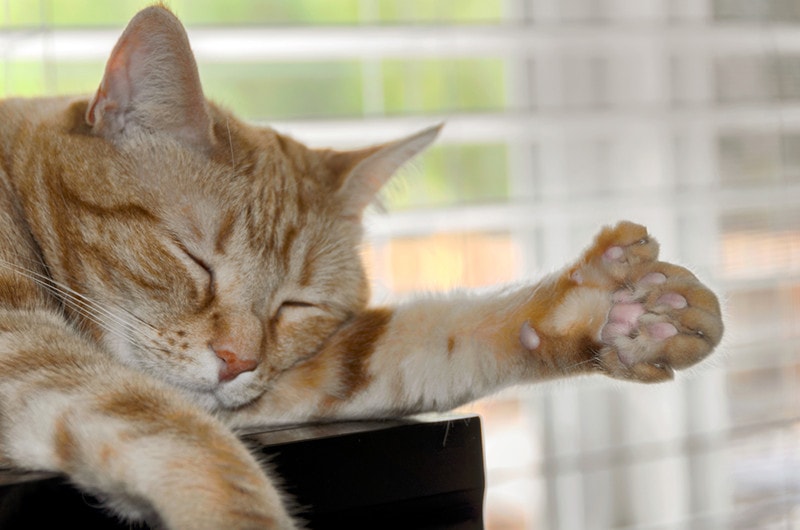
Conclusion
Individuals with Down syndrome have an additional chromosome 21 (or partial chromosome 21). Cats only have 19 pairs of chromosomes, making it impossible for them to have Down syndrome. While many people affected with Down syndrome have similar physical attributes, each person has their own individual genetic makeup and personality. Cats may have congenital abnormalities such as cerebellar hypoplasia, or even contract infectious diseases in the womb. These may lead to physical differences, but it does not mean your cat has Down syndrome, and your cat should never be referred to “looking like” Down syndrome. Specialized genetic testing is needed to determine if your cat has been born with any chromosomal abnormalities.
Featured Image Credit: Banglens, Shutterstock


